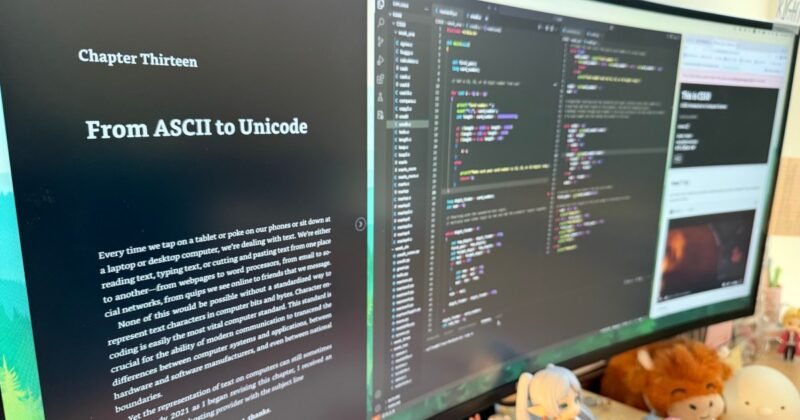Quick Takeaways
-
Embrace Fun in Learning: The best approach to learning coding is to prioritize enjoyment over efficiency; persistence in what excites you leads to success, even if foundational gaps exist initially.
-
Historical Context Matters: Starting with the history of computing, such as reading The Universal Computer, makes the subject more approachable and contextual, easing the transition into more technical topics.
-
Math is Not Mandatory: Fear of math should not deter you from coding; programming often abstracts complex mathematical concepts into user-friendly functions, allowing you to focus on higher-level programming instead.
- Gradual Understanding: Engaging with detailed resources like Code: The Hidden Language of Computer Hardware and Software can build knowledge incrementally, making challenging subjects feel accessible and manageable over time.
The Fun Way is the Best Way
Learning to code can seem intimidating, especially for beginners. Many people wonder where to start. I’ve discovered that enjoying the journey often leads to better learning outcomes. It’s essential to find an approach that resonates with you personally. For me, jumping straight into programming felt daunting. I appreciated that reading could ease me in, so I instead focused on the rich history of computers. By learning about pioneers like Ada Lovelace and Alan Turing, I connected with their stories. This historical perspective provided a solid foundation for understanding programming concepts later.
Many learning communities emphasize the “best” methods for acquiring coding skills. In my experience, the most successful learners aren’t those who stick rigidly to textbooks. They are the ones who keep exploring and experimenting, often stepping outside their comfort zones. By embracing a more enjoyable path, I built my confidence and curiosity. This mindset not only helped me understand why coding works but also made me eager to engage with programming itself, rather than being afraid of it.
The Universal Computer: Understanding Abstraction
As I ventured further into the world of coding, I encountered complex topics like binary and logic gates. Initially, they felt overwhelming. However, I soon realized these subjects boil down to understanding abstraction. Abstraction allows programmers to simplify problems by categorizing information and tasks. This process makes programming more accessible, even for those who may struggle with mathematics. Math plays a role in coding, but it isn’t the barrier many think it is.
Through reading and connecting concepts, I found that significant learning often occurs without explicit focus on challenging topics. For example, I learned about binary as part of the historical narrative instead of approaching it as a standalone challenge. This method allowed me to grasp coding fundamentals without the fear that often surrounds math-heavy discussions. I discovered that understanding the big picture can enhance your coding skills remarkably while encouraging a more holistic understanding of technology. By appreciating this journey, I now find coding less intimidating and more exciting. This shift in perspective can significantly motivate others to explore programming without the fear of failure.
Continue Your Tech Journey
Dive deeper into the world of Cryptocurrency and its impact on global finance.
Stay inspired by the vast knowledge available on Wikipedia.
TechV1

